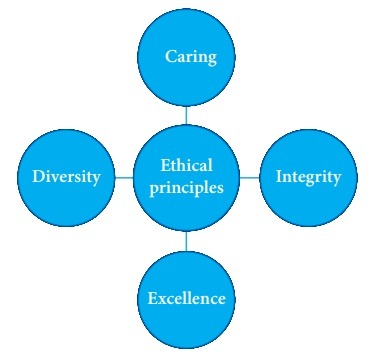We’ve all been familiar with Doctors and Nurses as long back as we can remember. Medical or healthcare professionals are generally considered life-savers. When they aren’t saving lives, they’re making sure we’re healthy and safe. We all look up to medical practitioners for many reasons.
Although the work of doctors and nurses go hand-in-hand, they’re not the same. The job of a nurse is quite different from that of a doctor. What I mean is, they have separate responsibilities.
Generally, a doctor’s job is to determine what the patient is suffering from and prescribe the required medicines or treatment. You might also associate doctors with carrying out surgeries. Surgeries are, however, performed by doctors who have received specialized training and education in that particular field. On the other hand, nurses are the professionals who assist the doctors in completing the said surgeries. Although assisting doctors in surgeries is part of a nurse’s job, it’s only a part of it.
So what does a nurse do?
If you look at it from a general perspective, a nurse’s job is to care for the patient. Several patients are assigned to a nurse. The nurse takes care of their needs and treats the patient under the guidance of the doctor. Treatment includes giving patients the medicines prescribed by the doctor. It’s the nurse’s job to make sure we’re taking our medications and help us recover.
When you take a deeper look into the context, you’ll find that a nurse’s job is not that simple. Taking care of several patients at a time is not an easy task. Nursing is a challenging profession, full of responsibilities and accountability. Medical practitioners often work under a lot of pressure and suffer from stress. Thus, to perform their duties well, nurses have to follow 7 Ethical Principles in their profession.
What are Ethical Principles?
Simply put, Ethical Principles are norms or rules which professionals have to follow while on the job. Principles may differ from profession to profession. These Ethical Principles are the moral code that practitioners use for performing their duties well. It determines what’s right and wrong and forms the basis on which judgments are made, or actions are taken. In a moral sense, it’s what drives people to do what is right or just.
The 7 Ethical Principles of Nursing

Now that you know what nursing is all about, let’s dive deeper. As discussed earlier, every profession has several ethics and principles which professionals must follow. Nursing is no different. There are 7 ethical principles in nursing; Justice, Beneficence, Nonmaleficence, Accountability, Fidelity, Autonomy, and Veracity. Let’s get straight to it then.
Justice
The first principle which a nurse must adhere to is the principle of justice. As the name suggests, a nurse should be impartial and provide equal treatment to all her patients. The nurse must be fair towards everyone. There must be no space for discrimination or unfair treatment towards any patient at any cost. Nurses are expected to lead by examples of kindness and empathy as their job demands such qualities.
As you already know, there are several patients assigned to a nurse at any given time. In today’s day and age, the world is much more diverse than it used to be. A nurse working in a hospital receives patients from various backgrounds. Patients’ may differ in race, caste, creed, sex, religion, education, nationality, or even financial capacity. The principle of justice demands that a nurse treat all of them equally and must not be unjust to anyone.
Beneficence
You might have noticed that the word beneficence sounds similar to the word benefit. If you’ve guessed it, then you’re correct. Beneficence comes from benefit. Why benefit? Let’s get to that.
Any and every service-based profession or industry is based on benefit. The benefit of whom? The benefit of the client. Professionals provide their services to clients for the use of the latter and receive an amount in return. That’s how it works.
Regarding the healthcare industry, the patients are the clients. Doctors and nurses provide their services to the clients in the hospital. The services of the nurse are to take care of the patients and help them in recovering. Patients suffer from various illnesses, and each of them must be treated differently. Thus everything that a nurse does must be for the benefit of the patient.
An example of beneficence is; changing the position of a bed-ridden patient. The nurse must do so to make sure the patient does not suffer from bedsores. Additionally, the nurse can tell the patient about schemes or teach them about health education. The job starts and ends with the benefit of the patient.
Non-maleficence
If you own a business, your job is to earn profits for yourself and expand your business. In case you’re an employee, your job is to make profits for the company and contribute to its growth. Whether running a business, being an employee, or providing a service, the end goal is the same. Every professional is required to do good to themselves and their employers. Causing damage to your own business or to that of your employer is never taken lightly.
The principle of Non-maleficence prevents nurses from causing harm to the patients. Under this ethical principle, a medical practitioner cannot, at any cost, cause any damage to the patient. A nurse should not do anything that could harm the patient or affect their well-being, whether intentionally or unintentionally. Not doing anything includes anything that could get in the way of a speedy recovery. It may also be anything that could deteriorate the condition of the patient.
Let’s create a hypothetical situation. In case a fire breaks out in the hospital, what is the duty of a nurse? The top-most priority of nurses is the patients. So if a fire breaks out, nurses must first evacuate all the patients.
Accountability

The principle of accountability states that a nurse is accountable or responsible for taking care of the patient. Well, we all know that a nurse’s job is to take care of the patient, right? But what does that mean? What does “being responsible for taking care of the patient” really mean?
It’s only fitting that a person assigned to a particular task or duty must fulfill their obligations responsibly. As providers of a service and caretakers of sickly patients, nurses are obligated to perform their duties well. A doctor’s job is to examine the patient, determine the illness and prescribe the medicine or treatment. After the doctor leaves is when the nurse’s job begins. This ethical principle of accountability solidifies the nurse’s duties to their patients as a medical professional in a moral sense.
Since nurses are there to nurse sick people back to health, they are also accountable if they make any mistakes. It is evident that a patient cannot and will not take the medicines on their own. If they could treat themselves, then they wouldn’t be in the hospital. Thus, the nurse has to feed them their medications and give them the medical attention and treatment they require. PCM or Patient Care Management is the most crucial part of a nurse’s job.
It is also important to note that accountability and responsibility are essential for a nurse’s job. Although it is not acceptable, nurses are also human, and it is, thus, natural to make mistakes. However, it is part of the profession that nurses are accountable for any errors on their part. If any error by a nurse causes harm to a patient, the nurse must take full responsibility.
Fidelity
Patient Care Management goes much deeper than simply taking care of a patient. A nurse’s job is more diverse than you would think. Apart from physical care, patients also require motivation and emotional strength. One can say, the nurse has to keep the patient happy and smiling. Such needs of the patient also fall under the duties of the nurse.
To keep a patient happy, a nurse must build an emotional bond with the patient. Such friendship can keep the patient in good spirits. But why is this so important? Well, the recovery of a patient is significantly affected by their mental state or emotional well-being. Such friendships increase the chances of quick recovery of patients, as mental state affects the physical condition.
The ethical principle of Fidelity states that a nurse must fulfill or keep any promise made to a patient. If a nurse has promised a child to let them watch television after injection, they must deliver the promise. Such commitments directly affect the friendship between a nurse and a patient. Fulfilling such promises also helps build a friendship, as the patient will like and trust the nurse. If not, the patient will not want to cooperate, making it difficult for both parties.
Autonomy

I’m sure we’ve all been taken care of at some point in our lives, right? When we are being taken care of, we must listen to the person taking care of us. Caretakers first come as parents, then babysitters, hostel wardens, personally appointed guardians, and lastly, even nurses. Although nurses are our caretakers and we are thus, obliged to listen to them, it is a bit different.
In a hospital, we are not admitted as children or students but as patients. Whatever the case may be, a nurse provides a service that the patient has or will pay for. As much as the relationship may become emotional, it remains professional. Everything is part of the job, and nurses must remember that. It is also crucial that the patients remember that as well.
The ethical principle of Autonomy is the only principle from the viewpoint of the patient. The patient has a right to self-determination. Nurses must take care of the patient; however, they cannot force a patient into taking a treatment he doesn’t want. Such is the case because the patient is a client. In a service-based industry, the customer is the ultimate boss. No one can force customers to agree to something they disapprove of.
It is essential to remember and respect a person’s rights. As an individual and a client, the patient has the right to self-determination. Thus, the principle of Autonomy states that a nurse must respect a patient’s right to self-determination. As long as a patient is sane, a nurse does not have the right to force a patient. If a patient refuses to receive a particular medical treatment, the nurse must leave it at that.
Veracity
I’m sure we all agree that truth is essential in life, as individuals, society, or even professionals. Unfortunately, many people choose not to speak the truth or live a truthful life. Especially in business, many individuals consider lies or hiding the truth to be more beneficial. Some individuals may thrive from deceiving people, hiding the truth, or not speaking the entire truth. However, nursing is not one of those professions.
There is not much for a nurse to gain personally from lying to patients or their families. Understandably, some news might be hard to deliver. However, nurses must, at any cost, be truthful to their patients. The patients and their families deserve to know the truth. There’s no point in giving people false hope. Doing so will only cause more pain and make the situation worse.
Regardless of whether the news is good or bad, patients and their families have the right to know. A nurse, or any medical practitioner for that matter, cannot keep the truth from them. In case patients are doing well, it is easy to tell them that they’re going to be fine soon. But what if a patient is not going to get better any time soon? Or if they don’t have any chance of survival?
In both the cases mentioned above, a nurse must remember the ethical principle of Veracity. The principle of Veracity is the seventh and last ethical principle in nursing. Under this principle, a nurse is bound to tell the truth to patients and their families no matter what.
 Nursing Trends
Nursing Trends







